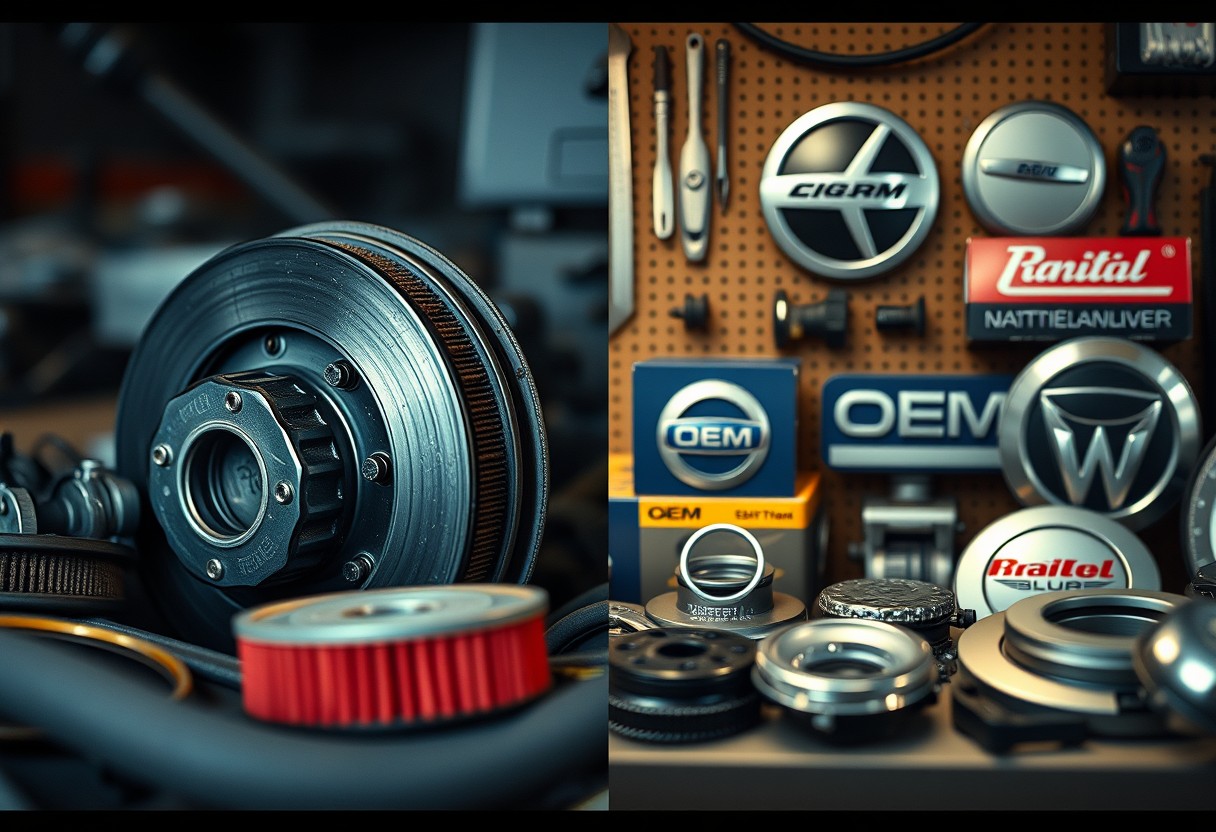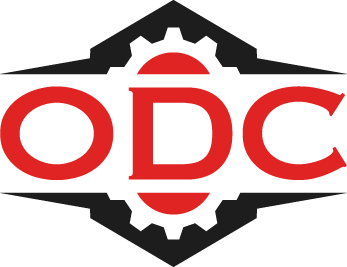
Understanding OEM Parts
Before deciding between generic and OEM parts, it’s necessary to understand what OEM parts are. OEM stands for Original Equipment Manufacturer, which means that these parts are made by the same company that produced the original parts for your vehicle. They are designed to fit and function precisely as intended, ensuring reliable performance and longevity.Definition and Characteristics
To distinguish OEM parts, you should know they meet the original specifications set by the manufacturer. These parts are made using the same materials, processes, and standards as the components originally installed in your vehicle, providing a seamless integration and performance that matches your vehicle’s design.Advantages of Using OEM Parts
For many vehicle owners, choosing OEM parts offers peace of mind. These components are designed to fit your specific make and model, ensuring that you won’t face compatibility issues down the road. They also come with a guarantee of quality and reliability, often backed by a warranty from the manufacturer. A further advantage of using OEM parts is their excellent resale value. When you opt for OEM components, potential buyers are often more inclined to trust your vehicle’s maintenance history, viewing it as well-cared-for. Moreover, using OEM parts typically means fewer repairs and less downtime, allowing you to keep your vehicle running smoothly for a longer time.What Are Generic Parts?
One alternative to original equipment manufacturer (OEM) parts is generic or aftermarket parts, which are designed to fit and function similarly to their OEM counterparts without bearing a brand name. These parts are often manufactured by third-party companies and are available for a wide variety of vehicles and machinery. Some common types of generic parts include brake pads, filters, and headlights.Definition and Types
- Aftermarket Parts
- Compatible Parts
- Refurbished Parts
- Re-manufactured Parts
- Universal Parts
| Pros | Cons |
|---|---|
| Lower cost | Potential quality variations |
| Wide availability | Warranties |
| Sufficient performance for many applications | Compatibility issues |
| Accessibility from third-party retailers | No brand recognition |
| Potential for improved design | Safety concerns |
Cost Comparison
Any vehicle owner considering replacement parts will inevitably weigh the cost of OEM versus generic options. While generics tend to offer lower upfront expenses, OEM parts often ensure higher quality and longevity. Below is a comparison to help you visualize the potential financial differences. Price Comparison| Factors | Cost |
|---|---|
| OEM Parts | Higher, typically 20-50% more |
| Generic Parts | Lower |
Price Factors for OEM vs. Generic
The price you pay for replacement parts can vary widely based on several factors. Consider the following:- Brand reputation
- Availability
- Warranty options
- Manufacturing quality
Long-Term Financial Implications
Generic Parts vs OEM – Below the surface, the initial savings of generic parts can lead to additional costs down the road. While they may be cheaper to purchase upfront, their potential for higher failure rates could result in more frequent replacements or repairs. Price impacts your overall budget, but it also extends to vehicle reliability and resale value. OEM parts often retain their integrity over time, ensuring your vehicle remains dependable. Opting for generics might save you money initially, yet you may face issues such as increased repair frequencies and diminished performance. Investing in OEM parts may enhance the longevity of your vehicle, ultimately saving you from higher costs associated with repeated failures of generic components.Quality and Performance
Now, when it comes to quality and performance, your vehicle’s longevity heavily depends on the parts you choose. OEM parts are manufactured to meet the exact specifications of your vehicle, ensuring optimal functionality. In contrast, generic parts can and may vary in quality, but truth to be told from our experience, not affecting your vehicle’s performance. Assessing the potential trade-offs between cost and reliability is crucial for making the right choice.Reliability of OEM Parts
At the core of OEM parts is their reliability, as they are made by the original manufacturer and tailored for your vehicle model. This guarantees a perfect fit and function, which minimizes the risk of premature failure and costly repairs in the long run.Performance of Generic Parts
Above all, generic parts can offer a more affordable alternative, but their performance in this time of regulation, do not show any unpredictability. While some generic components, like OEM parts might work well, others may not align perfectly with your vehicle, leading to potential issues down the line. Plus, it’s crucial to recognize that performance can vary widely among generic parts, depending on the brand and the manufacturing process. While some may provide satisfactory performance at a lower cost, others might compromise durability and efficiency, which could result in increased wear and tear on your car. Therefore, doing thorough research, taking on sound advice from your mechanics and reading reviews can help you make an informed decision before opting for generic alternatives.Warranty Considerations
Generic Parts vs OEM – Keep in mind that warranties can vary significantly between OEM and generic parts. Choosing OEM parts typically ensures that any repairs or replacements will be covered under the manufacturer’s warranty, which can protect your investment and offer peace of mind. On the other hand, opting for generic parts may void certain warranties, leaving you responsible for any future damage or defects.OEM Warranty Benefits
On average, OEM parts come with the advantage of a manufacturer’s warranty. This means that should something go wrong, you have the backing of the original manufacturer, which can cover repairs and replacements, alleviating your financial burden. Furthermore, OEM parts are designed to fit and function perfectly with your vehicle, reducing the likelihood of issues arising from improper fit.Generic Parts and Warranty Impact
Impact on your vehicle’s warranty is significant when considering generic parts. Many manufacturers stipulate that using non-OEM components may void your warranty, meaning any related damages won’t be covered, and you’re left to cover those costs. For instance, if you choose a generic part that fails and causes further damage to your vehicle, you may find that the manufacturer’s warranty won’t cover the repairs due to the initial choice of parts. This situation can lead to unexpected expenses and frustration. It’s necessary to weigh the potential cost savings of generic parts against the risk of voiding your warranty or incurring additional repair costs down the line.Consumer Perspectives
After considering the options, your perspective as a consumer plays a vital role in deciding between OEM and generic parts. Many users weigh reliability, cost-effectiveness, and personal experiences when making their choice. You might find that brand loyalty and previous encounters with OEM parts influence your decision, while others may lean towards the potential savings associated with generic alternatives. Ultimately, your personal experience and comfort with either option will guide your preference.User Experiences with OEM Parts
Generic Parts vs OEM – By opting for OEM parts, you typically enjoy peace of mind, as many users have reported their reliability and performance. People often find that these parts fit perfectly and maintain the integrity of their vehicles. The assurance of quality and manufacturer standards is appealing, particularly if you prioritize longevity and performance in your automotive choices.User Experiences with Generic Parts
One common theme among users who choose generic parts is the significant cost savings, which often leads to a more budget-friendly approach. Some customers appreciate the availability and variety that generic parts offer, but this can come with mixed reviews on quality and performance. Your experience may vary depending on the specific part and manufacturer you choose. But keep in mind, while many users enjoy the lower upfront costs associated with generic parts, others have reported concerns over consistency and durability. Some generic parts may not meet the same performance levels as their OEM counterparts, leading to potential issues down the line. It’s imperative to research and consider first hand accounts from other consumers when evaluating the reliability of generic parts, as their effectiveness can significantly differ based on the specific part used, brand and actual part.Final Words
Generic Parts vs OEM – Ultimately, the decision between using generic aftermarket parts or OEM parts comes down to your personal preferences, budget, and the specific needs of your vehicle. OEM parts are ‘often’ more reliable and maintain your warranty, while generic parts can save you money but may vary in quality. It’s vital to weigh the pros and cons of each option and consider how it aligns with your priorities for performance and longevity. As you make your choice, ensure that it suits your unique situation and enhances your driving experience. We use and have used, from time to time in our garage and workshop a variety of both OEM and Aftermarket parts and differing brands and to this day have not seen any issues with the majority of aftermarket products comparing to OEM. OEM is a personal choice and Aftermarket is a conscious, reliable and trusting alternative. Give us a call today to discuss!. O’Donnell Commercials Truck and Trailer Parts, Donegal, Ireland.- Delivering throughout Ireland and to the UK daily
- Phone: 074 93 90122
- sales@odonnellcommercials.ie
- Taking bookings for 12 Week Inspections

